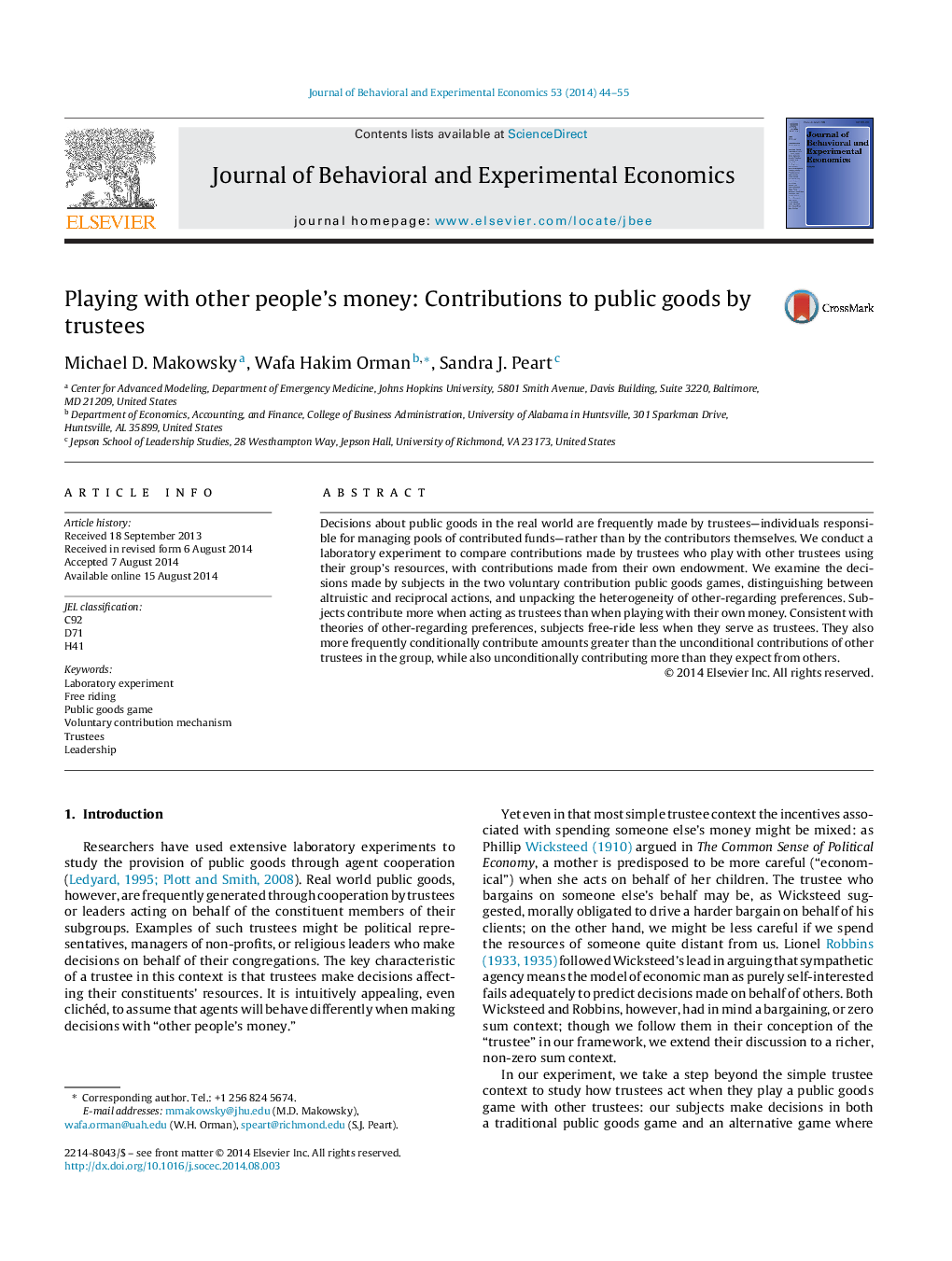| Article ID | Journal | Published Year | Pages | File Type |
|---|---|---|---|---|
| 881936 | Journal of Behavioral and Experimental Economics | 2014 | 12 Pages |
•Laboratory public goods voluntary contribution experiment.•Compare contributions made by trustees with contributions made with own endowment.•Subjects contribute more when acting as trustees than when playing with own money.•Trustees unconditionally contribute more than they expect from others.
Decisions about public goods in the real world are frequently made by trustees—individuals responsible for managing pools of contributed funds—rather than by the contributors themselves. We conduct a laboratory experiment to compare contributions made by trustees who play with other trustees using their group's resources, with contributions made from their own endowment. We examine the decisions made by subjects in the two voluntary contribution public goods games, distinguishing between altruistic and reciprocal actions, and unpacking the heterogeneity of other-regarding preferences. Subjects contribute more when acting as trustees than when playing with their own money. Consistent with theories of other-regarding preferences, subjects free-ride less when they serve as trustees. They also more frequently conditionally contribute amounts greater than the unconditional contributions of other trustees in the group, while also unconditionally contributing more than they expect from others.
